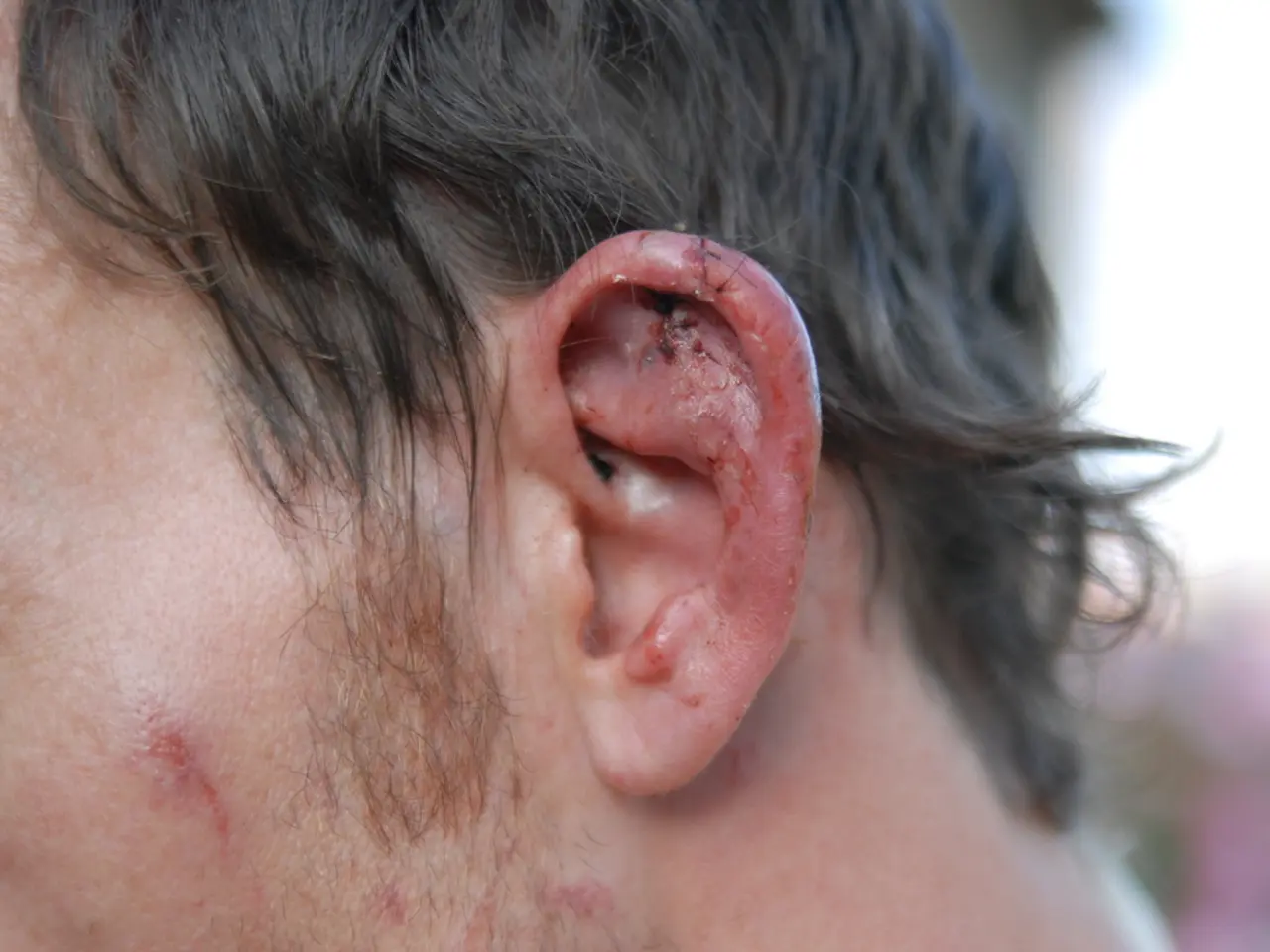Linking Vitamin D and a Reinforced Immunity
Vitamin D, often known for its role in bolstering the immune system and regulating inflammation, also plays a significant part in maintaining hearing health. This essential nutrient, which can be obtained through sunlight exposure, certain foods, supplements, or dietary choices, plays a crucial role in maintaining the proper functioning of ear structures vital to hearing.
The connection between vitamin D and hearing health primarily lies in its importance for bone metabolism, calcium regulation, and inner ear function. Maintaining healthy vitamin D levels supports the health of the ossicles (small bones in the middle ear) and the cochlea, the hearing organ.
Vitamin D is crucial for bone health and calcium absorption, helping to maintain bone density and the health of the ossicles. Disorders like otosclerosis, where abnormal bone growth impairs sound transmission, are linked to disruptions in calcium metabolism and vitamin D deficiency.
The cochlea, which has vitamin D receptors, suggests that vitamin D directly influences auditory function. Low vitamin D levels are associated with sensorineural hearing loss, likely due to its role in both bone integrity and nerve signaling in the ear.
Moreover, vitamin D protects inner ear structures and contributes to the balance of calcium and other minerals in the inner ear fluids, essential for proper nerve signaling and hearing sensitivity. This makes vitamin D particularly important for maintaining hearing health.
Maintaining adequate vitamin D levels can reduce the risk of hearing loss related to bone disorders like otosclerosis and Paget’s disease affecting the temporal bone. It can also help prevent or slow the progression of sensorineural and age-related hearing loss through optimal bone and nerve health.
Beyond vitamin D, good nutritional status, including antioxidants and minerals like magnesium and zinc, supports ear health. However, vitamin D's unique role in bone metabolism and calcium regulation makes it especially important for hearing.
Regular monitoring and supplementation if deficient could help protect hearing health over time. A study published in the BMJ found that vitamin D supplementation was associated with a reduced risk of acute respiratory infections, particularly for people with low baseline vitamin D levels.
Maintaining healthy vitamin D levels is an important consideration for those looking to maintain excellent health year-round, as it supports the body's immune function, which can potentially reduce the risk of complications from illnesses that could contribute to other health concerns.
Vitamin D plays a significant role in supporting immune function, which can impact overall well-being beyond just bone health. The most natural way to increase the production of vitamin D is to spend time in the sun, although the amount of vitamin D produced can vary depending on the time of day, skin tone, and sunscreen use.
For some people, especially those with certain medical conditions or little sun exposure, doctors may suggest vitamin D supplements. Vitamin D can help the body respond more effectively to conditions that may contribute to hearing loss.
During the winter, when daylight hours are shorter and people spend less time outside, vitamin D levels frequently decrease, potentially leading to an increase in respiratory illnesses. By preventing inflammation, vitamin D contributes to the creation of an internal environment that promotes healing and more efficiently maintains energy levels when it is kept at the proper levels.
The study also suggests that vitamin D's impact on the immune system can support improved general health. Vitamin D can help the body recover from illness and maintain balanced immune activity by assisting in the regulation of inflammatory responses.
In conclusion, maintaining adequate levels of vitamin D is essential for both hearing health and immune function. Incorporating foods high in vitamin D, such as fortified milk, plant-based substitutes, fatty fish like salmon, tuna, and mackerel, into your diet, or considering supplementation if necessary, can help safeguard your hearing health and overall well-being.
1.Science has revealed that vitamin D, which is known for bolstering immune system and regulating inflammation, also plays a significant role in maintaining hearing health.
- Maintaining healthy vitamin D levels, obtained through sun exposure, certain foods, supplements, or dietary choices, supports the proper functioning of ear structures vital to hearing, such as the ossicles and the cochlea.
- CBD and other health-and-wellness products, while not directly linked to hearing health like vitamin D, can potentially contribute to maintaining overall health, which indirectly supports good hearing.
- Additionally, other nutrients like magnesium, zinc, and antioxidants, found in healthy diets, also support ear health, although they do not play a unique role in bone metabolism and calcium regulation like vitamin D.




